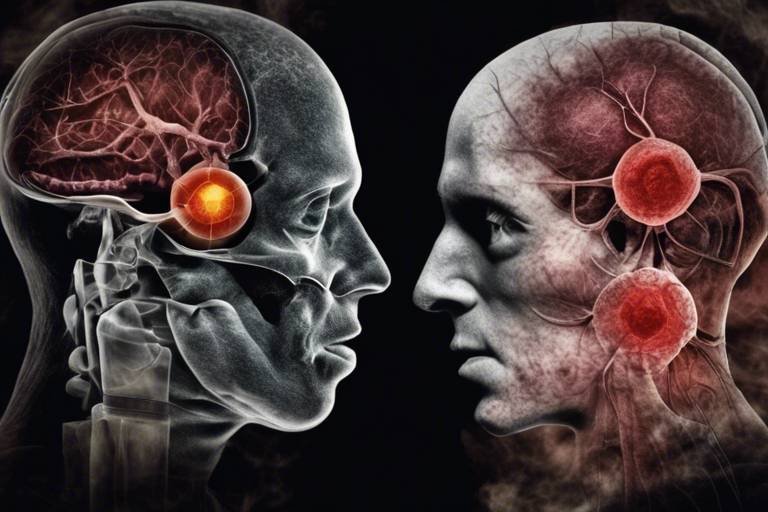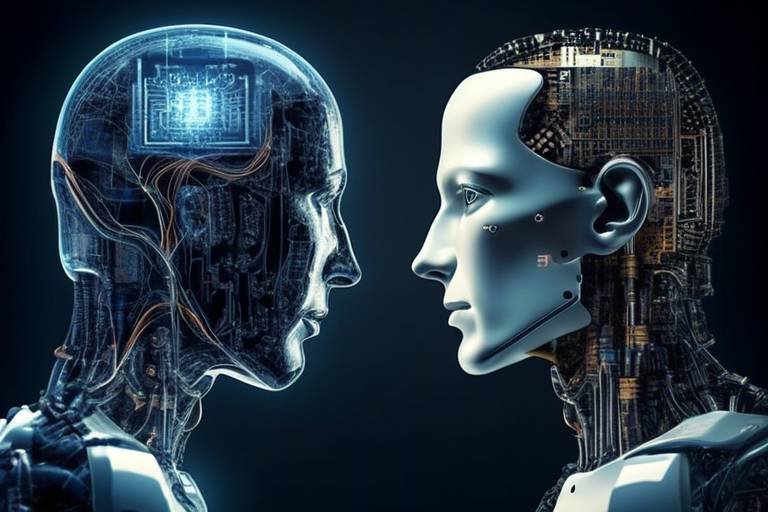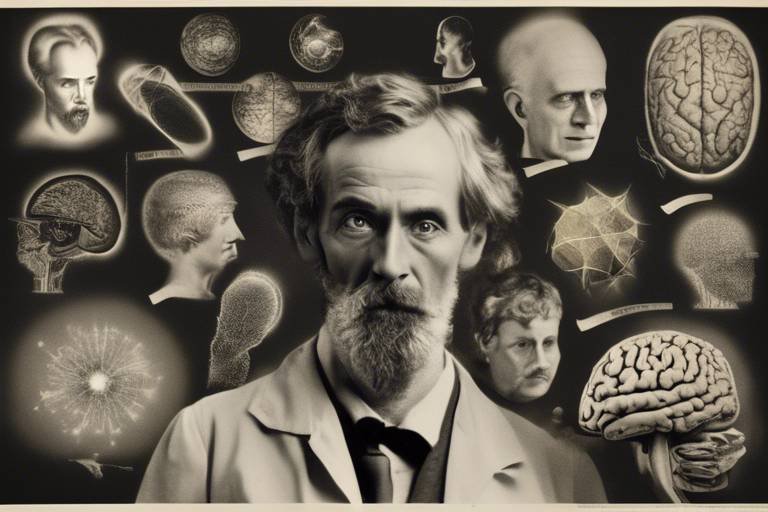The Fusion of Philosophy, Biology, and Psychology in Understanding Gender
Gender is a complex tapestry woven from threads of philosophy, biology, and psychology. Each of these disciplines contributes its unique perspective, enriching our understanding of what gender means in today’s world. Imagine walking through a vibrant marketplace where each stall represents a different discipline, showcasing its own insights and theories about gender. Philosophy offers deep reflections on identity and existence, biology presents the scientific underpinnings of gender, and psychology reveals the intricacies of human behavior and societal influence. Together, they create a holistic view that challenges traditional notions and embraces the fluidity of gender identity.
As we navigate this intricate landscape, we must consider the historical context that has shaped our current understanding. For centuries, gender was often seen through a binary lens—male and female, with little room for deviation. However, as philosophical debates evolved, so did our perception of gender. Think about it: if gender were a painting, philosophy would be the artist’s brush, constantly redefining the strokes and colors used to depict identity. Contemporary thinkers argue that gender is not merely a biological fact but a social construct influenced by cultural norms and personal experiences.
Biology, on the other hand, provides a foundation grounded in the physical and genetic aspects of gender. It’s fascinating to consider how our biological makeup—our genes, hormones, and even our brain structure—interacts with our sense of self. This intersection raises questions: Are we born with a specific gender identity, or is it shaped by our environment? Just as a tree grows towards the sunlight, so too does our understanding of gender evolve as we learn more about the biological factors at play. Understanding these biological influences helps us appreciate the diversity of gender experiences beyond the traditional binary framework.
Psychology adds another layer to this discussion by examining how individuals perceive and express their gender identity. It’s like opening a window into the mind, where we can see how societal expectations and personal experiences shape our understanding of ourselves. Psychological theories help us explore concepts such as gender socialization, where children learn about gender roles from a young age, and how these roles can impact mental health and self-identity. Imagine a child growing up in a world where they are told that certain colors or toys are only for boys or girls. This conditioning can have profound effects on their self-perception and emotional well-being.
In the end, the fusion of these three disciplines—philosophy, biology, and psychology—creates a rich dialogue that challenges us to rethink our assumptions about gender. It invites us to explore the nuances of gender identity and expression in a world that is increasingly recognizing and celebrating diversity. It’s not just about understanding gender; it’s about embracing the complexity of human identity in all its forms. So, as we continue to explore this multifaceted topic, let’s remain open-minded and willing to learn from each other’s experiences.
- What is gender identity? Gender identity refers to a person's deeply felt internal experience of gender, which may or may not align with the sex assigned at birth.
- How do philosophy and psychology intersect in understanding gender? Philosophy provides ethical frameworks and questions about identity, while psychology examines how these identities are formed and expressed in society.
- Can biology determine gender identity? While biological factors play a role, gender identity is also influenced by social, cultural, and psychological factors.
- Why is it important to understand the intersection of these disciplines? Understanding the interplay between philosophy, biology, and psychology allows for a more comprehensive and inclusive view of gender, promoting acceptance and understanding.

The Philosophical Foundations of Gender
When we dive into the philosophical foundations of gender, we’re not just skimming the surface; we're plunging into a rich tapestry woven from centuries of thought, debate, and evolution. Philosophy has long been the playground of ideas, where thinkers from various eras have grappled with the essence of what it means to be human, and gender is no exception. From ancient philosophers like Plato, who pondered the nature of reality and existence, to contemporary theorists who challenge binary notions of gender, the philosophical discourse surrounding gender is as diverse as it is profound.
At its core, philosophy prompts us to ask the big questions: What is gender? Is it a social construct, a biological imperative, or perhaps a blend of both? These inquiries have led to a multitude of theories. For instance, the concept of gender as a social construct suggests that society plays a critical role in shaping our understanding of gender roles and identities. Think of it this way: if gender were a play, society would be the director, influencing how each actor performs their role. In contrast, essentialist perspectives argue that gender is rooted in biology and innate characteristics, akin to a script that is predetermined by nature.
Moreover, the works of feminist philosophers have significantly contributed to the discourse on gender. Figures like Simone de Beauvoir challenged traditional notions of femininity, famously stating that “one is not born, but rather becomes, a woman.” This statement encapsulates the idea that gender identity is not a fixed trait but a dynamic process influenced by societal norms and personal experiences. The implications of this perspective are profound, as it opens the door for individuals to explore their gender identity beyond rigid classifications.
Philosophical debates also extend to the ethics of gender identity. Questions arise regarding the rights of individuals to define their own gender and the importance of recognizing and respecting diverse identities. This ethical consideration is crucial in a world where societal expectations can often clash with personal truths. For instance, the philosophical inquiry into transgender rights has sparked discussions about bodily autonomy, identity validation, and the moral responsibilities of society to support individuals in their gender journeys.
As we navigate these philosophical landscapes, it's essential to recognize that they don't exist in a vacuum. The interplay between philosophy, biology, and psychology creates a multifaceted understanding of gender. While philosophy lays the groundwork for our conceptual frameworks, biology provides the scientific context, and psychology offers insights into the lived experiences of individuals. Together, these disciplines paint a comprehensive picture of gender that acknowledges both the complexities of identity and the nuances of human experience.
In summary, the philosophical foundations of gender are not merely academic musings; they are vital to understanding the very fabric of our society. By engaging with these ideas, we can foster a deeper appreciation for the diverse expressions of gender and work towards a more inclusive world.

The Biological Aspects of Gender
When we think about gender, it's easy to get lost in a sea of societal norms and philosophical debates. However, the biological aspects of gender offer a fascinating and essential perspective that sheds light on how our identities are formed. From the moment of conception, our biological makeup begins to play a role in determining not just our physical characteristics, but also our gender identity and expression. This intricate tapestry of genetics, hormones, and brain structure sets the stage for who we are, and understanding it can reveal much about the complexity of gender.
First, let’s dive into the role of genetics. Research has shown that our genetic code can influence our gender identity in profound ways. For instance, certain genetic variations may predispose individuals to identify with a gender different from the one assigned at birth. This interplay between genetics and environment is crucial. It’s like a dance where both partners influence the outcome; neither can dictate the entire performance alone. Studies indicate that while genetics can provide a foundation, the environment in which a person is raised also plays a significant role in shaping their gender identity.
Genetic research has revealed some intriguing insights into how our DNA can impact our understanding of gender. For example, researchers have identified specific genes that may be linked to gender dysphoria, a condition where an individual feels a disconnect between their assigned gender and their experienced gender. This suggests that there is more than just a social construct at play; biology has its hand in the game as well. It's like having a blueprint for a house, but the way you decorate it depends on your personal taste and experiences.
Moving on to hormones, we find another layer of complexity. Hormones, particularly sex hormones like testosterone and estrogen, play a crucial role in gender development. During prenatal development, the exposure to these hormones can influence not just physical traits but also behaviors typically associated with gender. For instance, higher levels of prenatal testosterone have been linked to more traditionally masculine behaviors in females. This hormonal exposure acts as a powerful sculptor, shaping not just our bodies but also our identities.
Lastly, let’s consider the neurological aspects of gender. Recent findings in neuroscience have revealed that there are structural and functional differences in the brains of different genders. For example, studies using MRI scans have shown that certain areas of the brain may be larger or more active in one gender compared to another. This raises questions about how these differences contribute to our understanding of gender identity. Are these brain structures a result of biological factors, or do they develop in response to socialization? It's a compelling mystery that scientists are eager to unravel.
In summary, the biological aspects of gender encompass a myriad of factors including genetics, hormones, and neurological differences. Each of these elements weaves into the fabric of our identities, providing a biological foundation that interacts with social and psychological influences. Understanding these biological components not only enriches our comprehension of gender but also highlights the importance of recognizing the diversity of gender experiences in society.
- What role do genes play in gender identity?
Genes can influence gender identity by predisposing individuals to identify with a gender different from their assigned one at birth, but environmental factors also play a significant role. - How do hormones affect gender development?
Hormones like testosterone and estrogen significantly impact physical characteristics and behaviors associated with gender, particularly during prenatal development. - Are there neurological differences between genders?
Yes, research has shown structural and functional brain differences between genders, which may contribute to our understanding of gender identity.

The Role of Genetics
When it comes to understanding gender identity, genetics plays a fascinating and complex role. Imagine your genes as the blueprint for a house; they provide the foundation upon which everything else is built. But just like a house can be modified with renovations, our understanding of gender identity is influenced by both genetic factors and environmental interactions. Recent research has shed light on how genetic variations can shape the way individuals perceive their gender, leading to a more nuanced understanding of identity.
Studies have shown that certain genetic markers may be linked to gender dysphoria, a condition where an individual's experienced gender does not align with their assigned gender at birth. For instance, researchers have identified variations in genes that are involved in hormone regulation, which can impact how individuals experience their gender identity. This connection between genetics and gender is not just a simple cause-and-effect relationship; it's more like a dance, where genetics and environment interact in a complex choreography that shapes our sense of self.
Moreover, it’s crucial to recognize that genetics does not operate in isolation. The environment plays a significant role in how genetic predispositions manifest. For example, even if someone has a genetic inclination towards a particular gender identity, their experiences, upbringing, and societal influences can either amplify or diminish these feelings. This interplay suggests that while genetics provides a framework, the lived experience is equally important in shaping one's identity.
To illustrate this further, let's consider a few key points regarding the role of genetics in gender identity:
- Genetic Variations: Certain genetic variations may predispose individuals to experience gender in diverse ways.
- Hormonal Influence: Genes that regulate hormones can affect gender identity and expression.
- Environmental Interaction: The environment can influence how genetic predispositions are expressed, highlighting the importance of personal experiences.
In summary, the role of genetics in shaping gender identity is a multifaceted topic that intertwines with biological, psychological, and social factors. It's a reminder that our identities are not simply a product of nature or nurture alone, but rather a rich tapestry woven from both threads. As research continues to evolve, we gain deeper insights into this intricate relationship, paving the way for a more inclusive understanding of gender.
- Can genetics determine gender identity? Genetics can influence gender identity, but it is not the sole factor. Environmental and social influences also play significant roles.
- What are genetic markers? Genetic markers are specific sequences in DNA that can indicate a predisposition to certain traits, including aspects of gender identity.
- How does the environment affect genetic expression? Environmental factors, such as upbringing and social context, can influence how genetic predispositions are expressed in an individual’s experience of gender.
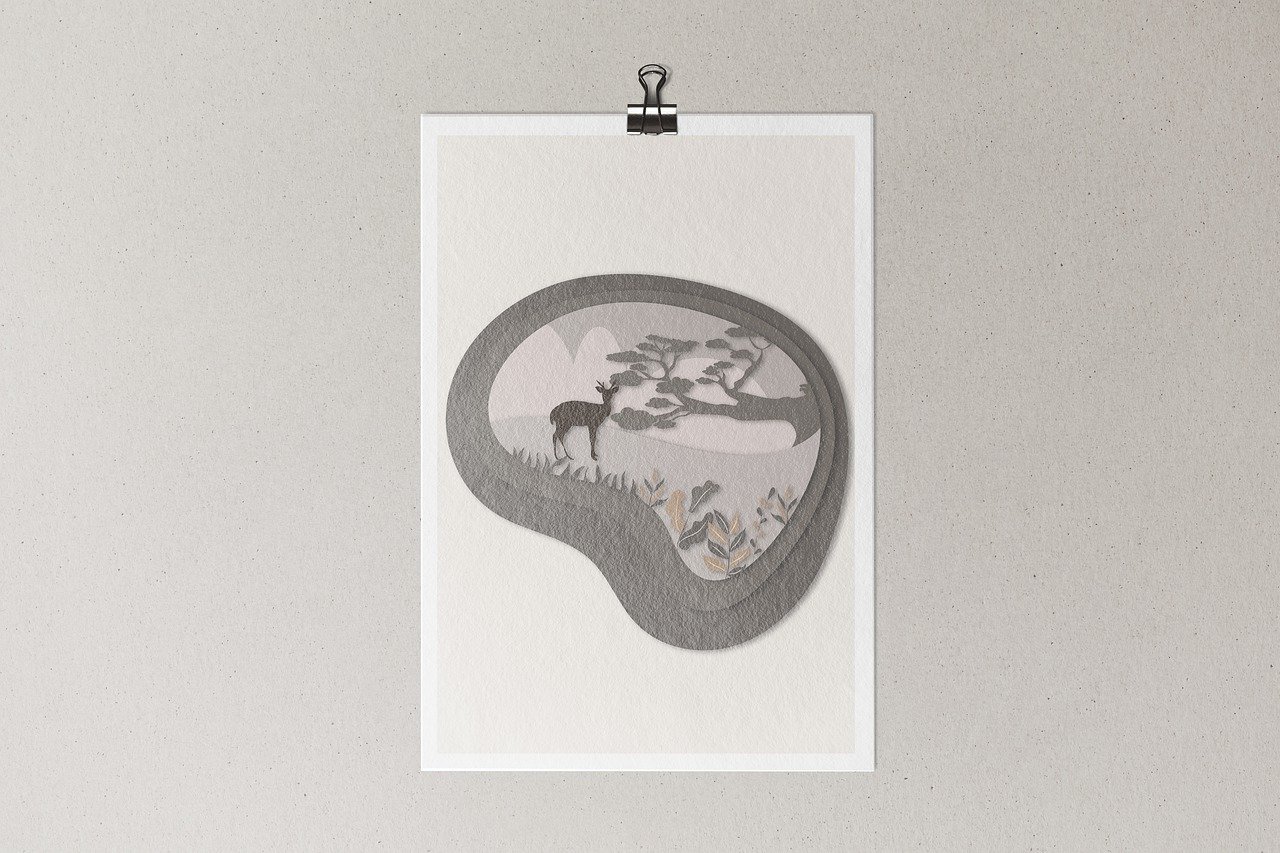
When we talk about gender identity, we can't overlook the profound impact of hormones. These chemical messengers play a crucial role in our bodies, influencing everything from physical development to emotional well-being. Imagine hormones as the conductors of an orchestra, guiding various instruments to create a harmonious symphony of gender expression. In this section, we’ll dive deep into how hormonal variations can shape our understanding of gender identity and behavior.
First and foremost, it’s essential to recognize that hormonal influences begin early in life. Prenatal exposure to specific hormones can set the stage for how an individual experiences their gender. For instance, testosterone and estrogen are not just sex hormones; they also play pivotal roles in brain development. Research has shown that elevated levels of testosterone in utero can lead to more traditionally 'masculine' behaviors, while higher estrogen levels may encourage 'feminine' traits. This early hormonal environment can be likened to the soil in which a plant grows; it significantly affects how that plant will develop over time.
After birth, the influence of hormones continues to evolve. Puberty is a particularly critical period where hormonal changes can lead to significant shifts in gender identity and expression. During this time, individuals experience a surge in sex hormones, which can reinforce feelings of alignment or misalignment with their assigned gender at birth. For example, a person assigned female at birth may experience an increase in estrogen, which can enhance traits traditionally associated with femininity. Conversely, those assigned male may see a rise in testosterone, amplifying masculine traits. This can be a tumultuous time, as the body and brain are both undergoing rapid changes.
Moreover, it’s not just about the presence of hormones but also about the sensitivity of the body to these hormones. Some individuals may have a heightened sensitivity to estrogen or testosterone, affecting how they perceive and express their gender. This variability is crucial in understanding why two people with similar hormonal profiles can have vastly different experiences regarding their gender identity. It’s almost like tuning a guitar; even the slightest adjustment can create a completely different sound.
To illustrate the impact of hormonal influences, consider the following table that summarizes key hormones and their effects on gender development:
| Hormone | Role in Gender Development |
|---|---|
| Testosterone | Promotes the development of male physical traits and behaviors, influencing aggression and spatial abilities. |
| Estrogen | Encourages the development of female physical traits and behaviors, influencing emotional expression and nurturing tendencies. |
| Progesterone | Regulates menstrual cycles and pregnancy, also impacting mood and emotional well-being. |
In conclusion, the hormonal influences on gender identity are complex and multifaceted. They begin in the womb and continue to evolve throughout life, shaping our perceptions and expressions of gender. Understanding these hormonal dynamics is essential for fostering a more inclusive and compassionate dialogue around gender identity. As we continue to explore these intricate relationships, we can better appreciate the diverse experiences that individuals have regarding their own identities.
- How do hormones influence gender identity? Hormones, particularly testosterone and estrogen, play a significant role in shaping both physical and emotional aspects of gender identity from prenatal development through puberty and beyond.
- Can hormonal treatments change gender identity? Yes, hormonal treatments can assist individuals in aligning their physical characteristics with their gender identity, often leading to improved mental well-being and self-acceptance.
- Are hormonal influences the only factors shaping gender identity? No, while hormones play a crucial role, psychological, social, and environmental factors also significantly contribute to an individual's understanding and expression of their gender.

Neurological Differences
In the quest to understand gender identity, the field of neuroscience has emerged as a vital player, shedding light on the structural and functional differences in the brains of different genders. Recent research suggests that there are indeed observable variations in brain anatomy and function that correlate with gender identity. These findings challenge the traditional binary view of gender and open the door to a more nuanced understanding of what it means to identify as male, female, or non-binary.
For instance, studies using advanced imaging techniques have shown that certain brain regions vary in size and activity between genders. A notable example is the bed nucleus of the stria terminalis (BSTc), which has been found to differ in volume between cisgender men and women. This particular area is associated with sexual behavior and gender identity, suggesting that our brains are not just affected by societal norms but are also wired in ways that contribute to our understanding of gender.
Moreover, the interplay between genetics and environmental factors cannot be overlooked. While some neurological differences may stem from biological predispositions, the environment plays a crucial role in shaping how these differences manifest. It's almost like a dance, where genetics provide the rhythm, and environmental influences determine the steps. This dynamic interaction suggests that gender identity is not solely fixed at birth but can be influenced by a combination of biological and experiential factors.
To illustrate the complexity of these neurological differences, consider the following table summarizing key findings from recent studies:
| Study | Findings |
|---|---|
| Study A (2018) | Identified structural differences in the BSTc between cisgender men and women. |
| Study B (2020) | Found variations in brain connectivity patterns related to gender identity. |
| Study C (2021) | Highlighted the role of prenatal hormone exposure in brain development and gender identity. |
As we delve deeper into the neurological aspects of gender, it becomes clear that our brains are not simply a reflection of our biological sex; they are intricate systems shaped by a myriad of factors. This understanding encourages us to embrace a broader definition of gender that acknowledges the rich tapestry of human experience. It's a reminder that gender is not just a label but a complex interplay of biology, psychology, and societal influence, deserving of respect and recognition.
- What are neurological differences in gender identity? Neurological differences refer to variations in brain structure and function that correlate with an individual's gender identity, influenced by both genetic and environmental factors.
- How do hormones affect brain development related to gender? Hormones play a significant role in brain development during critical periods, influencing areas associated with gender identity and behavior.
- Can gender identity change over time? Yes, gender identity can evolve due to a variety of factors, including personal experiences, social influences, and neurological development.
- What is the significance of the BSTc in understanding gender? The BSTc is a brain region that has been found to differ in size between cisgender men and women, suggesting a biological component to gender identity.

Psychological Perspectives on Gender
The exploration of gender through a psychological lens is a fascinating journey that intertwines various theories and concepts. It invites us to ponder how our identities are shaped not only by biological factors but also by the intricate web of social influences and personal experiences. At its core, psychological perspectives on gender delve into how individuals come to understand themselves in relation to societal norms and expectations. Have you ever wondered why certain behaviors are deemed 'masculine' or 'feminine'? This questioning is at the heart of psychological inquiry into gender identity.
One key aspect of psychological theories on gender is the process of socialization. From a young age, individuals are bombarded with messages about what it means to be male or female, often dictated by cultural norms and family expectations. These societal constructs can significantly influence one’s self-perception and behavior. For instance, children might be encouraged to play with specific toys or pursue certain activities based on their assigned gender, leading to a reinforcement of traditional gender roles. This brings us to the question: how much of our gender identity is a product of our environment versus our inherent nature?
Cognitive development also plays a crucial role in shaping gender identity. According to cognitive development theories, children actively construct their understanding of gender based on their interactions and observations. They categorize behaviors, traits, and roles into gendered frameworks, which can either align with or challenge societal norms. For example, a child observing a female engineer might begin to question the stereotype that engineering is a male-dominated field. This realization can be empowering, allowing for a broader understanding of gender roles.
Moreover, the impact of societal norms on individual experiences cannot be overstated. Psychological research indicates that adherence to rigid gender roles can lead to mental health challenges. Individuals who feel pressured to conform to societal expectations may experience anxiety, depression, or a diminished sense of self-worth. This highlights the importance of fostering environments that celebrate diversity in gender expression. By challenging stereotypes and promoting inclusivity, we can create a society where everyone feels free to express their true selves.
In summary, psychological perspectives on gender reveal a complex interplay between socialization, cognitive development, and societal norms. Understanding these factors is essential for grasping how individuals navigate their gender identities. As we continue to explore this intricate landscape, it becomes evident that fostering a more inclusive understanding of gender can have profound implications for mental health and overall well-being.
- What is gender identity? Gender identity refers to an individual's personal sense of their gender, which may or may not correspond with the sex they were assigned at birth.
- How does socialization impact gender identity? Socialization influences gender identity by exposing individuals to cultural norms and expectations regarding gender roles from a young age.
- Can gender identity change over time? Yes, gender identity can evolve as individuals gain new experiences and insights about themselves and their place in society.
- What role do psychological theories play in understanding gender? Psychological theories help explain how individuals form their gender identities and how societal norms affect their mental health and self-perception.

The Intersection of Philosophy and Psychology
The intersection of philosophy and psychology is a fascinating realm where abstract ideas meet tangible human experiences. As we delve into the complexities of gender, it becomes clear that philosophical inquiries significantly shape our understanding of psychological theories. Have you ever pondered how our beliefs about gender identity influence the way we think and feel about ourselves? This is where philosophy steps in, providing a framework for examining the ethical implications of gender identity and the nature of self-identity.
Philosophy asks the big questions: What does it mean to identify as a certain gender? How do our beliefs shape our experiences? These inquiries are not just academic; they have real-world implications. For instance, when we consider the ethical dimensions of gender identity, we must acknowledge the importance of respecting individual experiences. This respect is fundamental in psychological practices, especially when dealing with clients who may feel marginalized or misunderstood due to their gender identity.
Moreover, the relationship between philosophy and psychology extends to the concept of self-identity. Philosophers like Simone de Beauvoir and Judith Butler have challenged traditional notions of gender, arguing that gender is not a fixed attribute but rather a fluid construct shaped by social and cultural contexts. This perspective resonates deeply within psychology, where understanding the fluidity of gender can lead to more inclusive therapeutic practices. By recognizing that gender identity can be a spectrum rather than a binary, psychologists can better support individuals in their unique journeys of self-discovery.
One significant area where philosophy and psychology converge is in the exploration of ethical considerations surrounding gender identity. Ethical frameworks guide psychologists in how they approach gender-related issues, ensuring that they promote inclusivity and respect for all individuals. For example, psychologists are increasingly adopting practices that affirm diverse gender identities, which is essential in fostering a safe and supportive environment for clients. This ethical commitment is not just a professional obligation; it reflects a deeper philosophical stance that values the dignity and autonomy of every person.
Additionally, societal constructs of gender greatly impact psychological well-being. The stereotypes and expectations that society places on individuals can create immense pressure, leading to feelings of inadequacy or distress. Here, philosophy helps us question these constructs: Are they inherently harmful? Do they restrict our understanding of what it means to be human? By addressing these questions, we can better comprehend how societal norms shape our psychological experiences.
In conclusion, the intersection of philosophy and psychology offers a rich tapestry of insights into gender identity. By weaving together ethical considerations, self-identity, and societal constructs, we gain a more comprehensive understanding of the complexities surrounding gender. This interdisciplinary approach not only enriches our knowledge but also enhances our ability to support individuals in their unique gender journeys.
- How do philosophy and psychology influence each other in understanding gender?
Philosophy provides the ethical and conceptual frameworks that shape psychological theories, while psychology offers empirical insights that can refine philosophical discussions. - What role does ethics play in gender identity research?
Ethics ensures that research respects individual experiences and promotes inclusivity, guiding psychologists in their practices. - How can understanding societal constructs improve psychological practices?
Recognizing societal constructs allows psychologists to challenge stereotypes and create a more supportive environment for individuals exploring their gender identity.
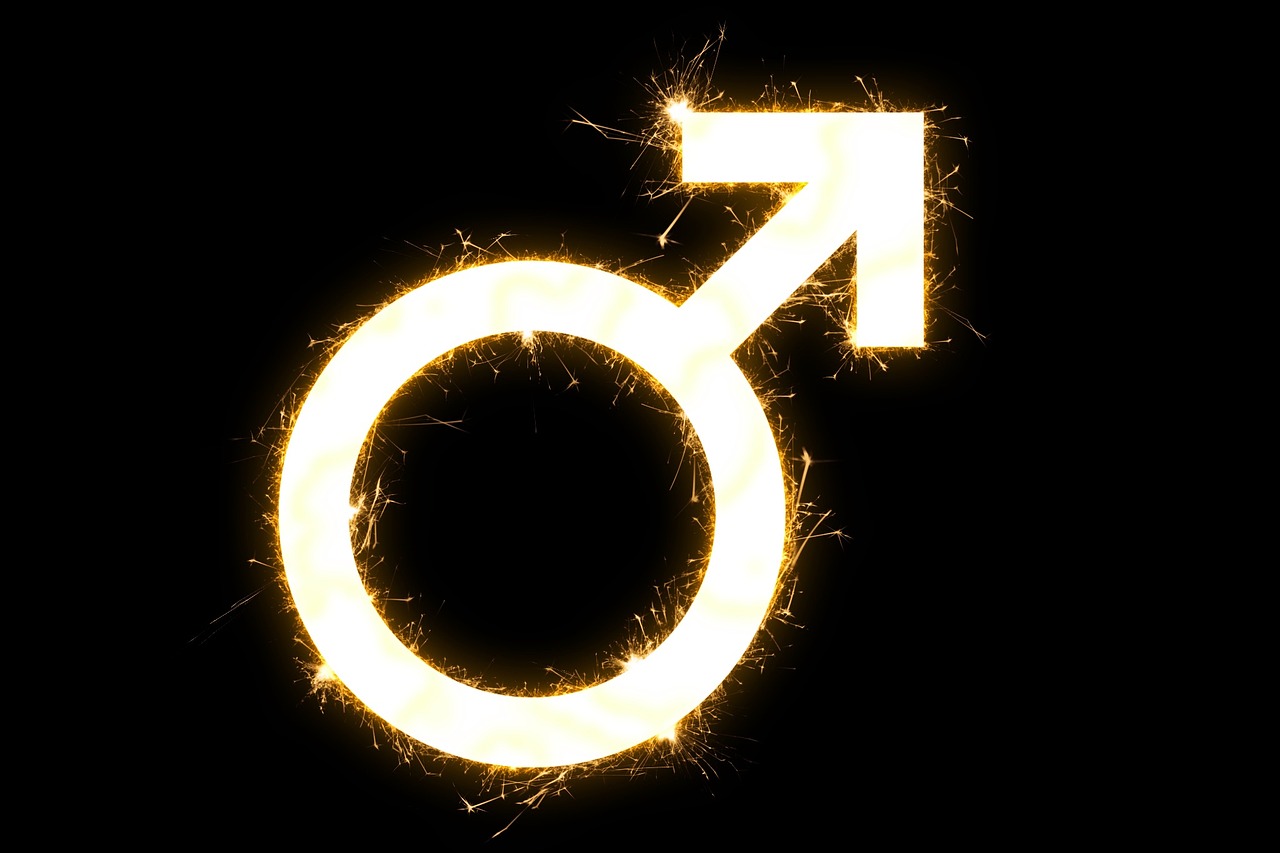
Ethics in Gender Identity
When we delve into the realm of gender identity, it’s impossible to ignore the ethical implications that arise from our understanding and discourse surrounding it. At its core, gender identity is a deeply personal aspect of human experience, shaped by a multitude of factors including societal norms, personal experiences, and biological influences. However, the conversation about gender is often clouded by misconceptions and biases that can lead to ethical dilemmas.
One of the most pressing ethical issues in gender identity is the necessity of respecting individual experiences. Each person's journey in discovering their gender identity is unique, and it is crucial that we acknowledge and validate these experiences without imposing our beliefs or societal expectations. For instance, when discussing gender identity in clinical settings, practitioners must prioritize the voices of their clients, ensuring that they feel seen and heard. This aligns with the principles of informed consent and autonomy, which are foundational in ethical practice.
Moreover, promoting inclusivity in psychological practices is essential. This means creating environments where individuals of all gender identities feel safe and supported. Ethical practice involves not only recognizing the existence of diverse gender identities but also actively working against discrimination and bias. It’s important for mental health professionals to engage in ongoing training and education, ensuring they are equipped to handle the complexities of gender identity with sensitivity and understanding.
Additionally, we must consider the role of societal constructs in shaping perceptions of gender. The stereotypes and expectations imposed by society can have profound effects on individuals’ mental health and self-esteem. For example, someone who identifies outside the traditional binary may experience significant distress due to societal pressures to conform. As such, ethical considerations must include advocacy for systemic changes that challenge these harmful constructs. This can involve raising awareness, promoting education, and supporting policies that protect individuals from discrimination based on their gender identity.
In conclusion, the ethics of gender identity are not merely academic; they have real-world implications for individuals navigating their identities. By fostering a culture of respect, inclusivity, and advocacy, we can help ensure that everyone has the right to define and express their gender without fear of judgment or discrimination. As we continue to explore this complex landscape, it is vital to remain committed to ethical principles that honor the dignity and humanity of all individuals.
- What is gender identity? Gender identity refers to an individual's personal sense of their gender, which may or may not correspond with the sex they were assigned at birth.
- Why is ethics important in discussions about gender identity? Ethics are crucial because they guide how we respect and validate individual experiences while promoting inclusivity and combating discrimination.
- How can we promote inclusivity in gender identity discussions? By fostering open dialogue, educating ourselves and others, and advocating for policies that protect all gender identities.

Social Constructs and Psychological Impact
The way we perceive gender is heavily influenced by social constructs, which are the unwritten rules and expectations that society places on individuals based on their gender. These constructs shape not only our identities but also our behaviors, aspirations, and even our mental health. Imagine being handed a script before entering a play, where every character is defined by societal norms. This is how many people experience gender: they feel pressured to conform to roles that may not resonate with their true selves.
One of the most significant impacts of these social constructs is the pressure to fit into traditional gender roles. For instance, men are often expected to be strong and stoic, while women are encouraged to be nurturing and emotional. These stereotypes can lead to a range of psychological issues, including anxiety, depression, and low self-esteem. When individuals feel they cannot live up to these expectations, it can create a dissonance between their self-identity and societal demands. This dissonance can manifest in various ways, including stress and a lack of fulfillment.
Moreover, the impact of social constructs extends beyond personal feelings. They can influence relationships, career choices, and even health outcomes. For example, women may feel discouraged from pursuing careers in STEM (Science, Technology, Engineering, and Mathematics) fields due to the stereotype that these areas are more suited for men. Similarly, men might shy away from expressing vulnerability or seeking help for mental health issues due to the stigma surrounding masculinity. This creates a vicious cycle where societal expectations hinder personal growth and well-being.
To illustrate the psychological impact of these constructs, let’s take a look at some common societal expectations and their potential effects:
| Gender Expectation | Potential Psychological Impact |
|---|---|
| Men should be emotionally strong | Increased feelings of isolation and difficulty expressing emotions |
| Women should prioritize family over career | Feelings of guilt or inadequacy when pursuing personal ambitions |
| Non-binary individuals face misunderstanding | Heightened anxiety and depression due to lack of acceptance |
In conclusion, social constructs surrounding gender not only shape our identities but also significantly impact our psychological health. By challenging these constructs and promoting a more inclusive understanding of gender, we can foster an environment where individuals feel free to express their true selves without the burden of societal expectations. This shift not only benefits individual well-being but also enriches society as a whole.
- What are social constructs? Social constructs are the ideas and norms created by society that influence how we perceive and behave in relation to various aspects of life, including gender.
- How do social constructs affect mental health? Social constructs can lead to pressure to conform to certain roles, which can result in anxiety, depression, and low self-esteem when individuals feel they cannot meet these expectations.
- Can social constructs change over time? Yes, social constructs can evolve as society changes and becomes more inclusive, leading to a broader understanding of gender and identity.
Frequently Asked Questions
- What is the relationship between philosophy and gender?
Philosophy provides a foundational framework for understanding gender by examining the concepts of identity, roles, and societal expectations. It encourages critical thinking about how gender is defined and perceived, influencing contemporary discussions on gender identity and expression.
- How does biology influence gender identity?
Biology plays a significant role in shaping gender identity through genetic, hormonal, and neurological factors. These biological determinants can affect how individuals experience and express their gender, often intertwining with environmental influences to create a unique sense of self.
- Can genetics determine gender identity?
While genetics can influence aspects of gender identity, it is essential to understand that gender is a complex interplay of biological, environmental, and social factors. Research suggests that genetic variations may contribute to one's sense of gender, but they do not solely define it.
- What role do hormones play in gender development?
Hormones significantly impact gender development, particularly during prenatal and postnatal stages. Hormonal exposure can shape behaviors and preferences that align with gender identity, illustrating the biological underpinnings of how individuals come to understand and express their gender.
- Are there neurological differences between genders?
Recent neuroscience studies indicate that there may be structural and functional brain differences between genders. These differences can contribute to varying experiences and expressions of gender, providing insight into the biological aspects of gender identity.
- How does psychology explain gender identity formation?
Psychology offers theories that explore how gender identity is formed through socialization, cognitive development, and the influence of societal norms. These factors shape individual experiences, highlighting the importance of understanding the psychological dimensions of gender.
- What ethical considerations are involved in gender identity research?
Ethical considerations in gender identity research emphasize the need to respect individual experiences and promote inclusivity. Researchers must ensure that their work acknowledges the diversity of gender identities and supports the well-being of participants.
- How do societal constructs affect psychological well-being?
Societal constructs of gender can significantly impact psychological well-being by imposing stereotypes and expectations. These constructs can lead to stress and mental health challenges for individuals who feel pressured to conform, highlighting the need for a more inclusive understanding of gender.







